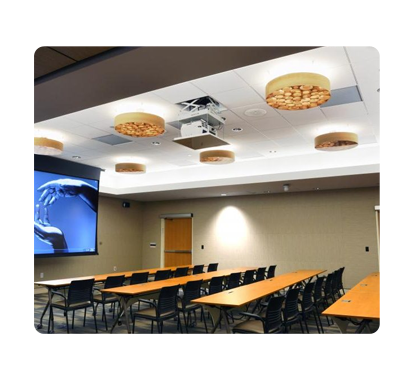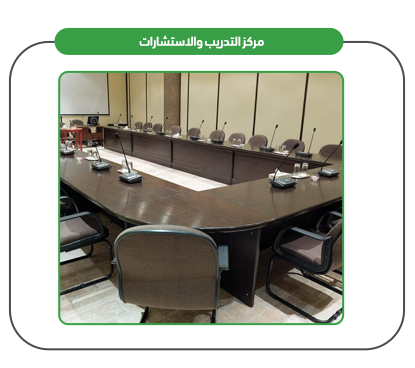The Training and Consulting Center is a community service initiative aimed at offering academic and professional programs to individuals and organizations. These programs encompass vocational, technical, managerial, linguistic, and technological training, among others. The project seeks to improve the capabilities of participants, including university students and employees, by enhancing their personal and professional skills. Addressing the diverse needs of universities, organizations, institutions, and the broader community, the center aims to enhance the performance and self-efficacy of its participants.

The Training and Consulting Center is a community service initiative aimed at offering academic and professional programs to individuals and organizations. These programs encompass vocational, technical, managerial, linguistic, and technological training, among others.
The project seeks to improve the capabilities of participants, including university students and employees, by enhancing their personal and professional skills. Addressing the diverse needs of universities, organizations, institutions, and the broader community, the center aims to enhance the performance and self-efficacy of its participants.
Mashroo3k for Economic Consulting is pleased to provide specialized services tailored for investors interested in investment opportunities in the Training and Consulting Center. We conduct meticulous evaluations of the project’s economic viability and execution. Our comprehensive and integrated services encompass every aspect of the project, including marketing, technical, financial, and administrative considerations. Leveraging our extensive database, we analyze market indicators and forecast future requirements.




The service sector does not fundamentally rely on raw materials or goods and their sale; rather, its activities are based on providing intangible services such as transportation services, hospitality services, healthcare services, and others. This sector is considered the main driver of major economies; for example, in the United States, the service sector accounts for 85% of the GDP.
As for the service sector in Saudi Arabia, statistics and indicators confirm its contribution of about 48.02% to the GDP. This vital sector includes five main activities:
Wholesale and retail trade, restaurants, and hotels:
Saudi Arabia’s GDP amounted to 2,625,442 million SAR. The “wholesale and retail trade, restaurants, and hotels” activity contributed about 10.8% (284,579 million SAR) to this GDP.
Transportation, storage, and communications services:
The “transportation, storage, and communications” activity contributes approximately 6.6% (172,304 million SAR).
Financial services, insurance, real estate, and business services:
The “financial services, insurance, real estate, and business services” activity contributes about 6.4% (377,725 million SAR) to the GDP.
Community, social, and personal services:
This activity contributes about 2.5% (65,729 million SAR) to the GDP.
Government services:
Its contribution to the GDP is 21.9% (576,089 million SAR)
